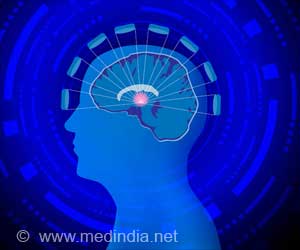Scientists have discovered that changes in brain waves could signal cognitive impairment in people suffering from Parkinson’s disease.
- Most people with Parkinson’s disease experience cognitive decline
- A recent study suggests there is a strong link between reduced brain activity and cognitive dysfunction in Parkinson’s patients
- The electroencephalogram (EEG) could be an affordable, non-invasive, and painless way to measure cognitive issues and potentially pave the way for future treatment
Evoked mid-frontal activity predicts cognitive dysfunction in Parkinson’s disease
Go to source).
“Furthermore, although we have quite a few effective treatments for the motor symptoms of Parkinson's, including medical therapies and deep brain stimulation, we have very few treatments for the cognitive aspects of Parkinson's disease.”
EEG Could be a Potential Tool to Predict Dementia in Parkinson’s Disease
The brain recordings were made using electroencephalography (EEG), a fairly old and generally available technology that monitored low-frequency brain waves known as delta and theta waves in the frontal region of study participants' brains.The UI team discovered that decreased strength of these unique brain waves when a patient is compelled to think is closely associated with cognitive failure in Parkinson's disease. The findings imply that EEG, which is also affordable and non-invasive, could help identify cognitive impairment in Parkinson's disease patients.
“Traditional methods for diagnosing cognitive problems often involve time-consuming pen and paper tests and require a neurologist to administer and interpret the tests. In addition, because these traditional tests can be ‘learned,’ they cannot be used repeatedly over time for the same patient,” says Narayanan, who is also a neurologist with UI Health Care and a member of the Iowa Neuroscience Institute.
“In contrast, EEG can be done continuously over several hours or days. It can be applied in nursing homes or patient’s homes, and it gives you a richly featured description of a patient's cognitive status.”
Reduced Brain Signals Could be the Reason Behind Cognitive Issues in Parkinson’s
Finally, the study, which is one of the largest to date, involving 100 Parkinson's disease patients ranging in cognitive function from healthy to dementia, as well as 49 demographically similar control participants, reveals a fundamental insight into the role of the brain signal measured by the EEG electrode.All of the participants performed three different tasks that are typically used to assess cognitive control, and while they were doing so, a single EEG electrode assessed the strength of their frontal cortex's low-frequency delta and theta brain waves.
“Surprisingly, the effect was seen simply because the patient was required to pay attention to a cue and respond. I think this is the deep insight into why Parkinson’s patients have cognitive problems: they fail to engage these basic response processes in the brain,” Narayanan explains.
“That was very surprising to us, and it's helpful because it means we might be able to get information about cognitive function using the simplest version of this task where there's a cue, and the patient has to engage and respond. That process— cue, engage, respond—might be enough to determine where patients are on the cognitive status scale and whether they have the potential to improve.”
According to Narayanan, this information may potentially provide a chance to assist patients. Cueing Parkinson's sufferers to do a task, whether it's walking, talking, or thinking, could improve their performance. If this is accurate, it will have significant consequences for how rehabilitation, occupational, and speech therapists help people with Parkinson's disease.
Narayanan's team's next steps will be to research the mechanisms that relate decreased delta and theta brain waves to worse cognition in Parkinson's disease, as well as to better understand how EEG technology could be used to improve diagnosis or possible treatment of cognitive impairment in individuals with Parkinson's disease.
Reference:
- Evoked mid-frontal activity predicts cognitive dysfunction in Parkinson’s disease - (https://jnnp.bmj.com/content/early/2023/05/31/jnnp-2022-330154)
Source-Medindia
















